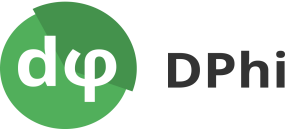MLOps Zoomcamp
Our MLOps Zoomcamp course
- Sign up here: https://airtable.com/shrCb8y6eTbPKwSTL (it's not automated, you will not receive an email immediately after filling in the form)
- Register in DataTalks.Club's Slack
- Join the
#course-mlops-zoomcampchannel - Tweet about the course!
- Subscribe to the public Google calendar (subscription works from desktop only)
- Start watching course videos! Course playlist
- Technical FAQ
Overview
Objective
Teach practical aspects of productionizing ML services — from collecting requirements to model deployment and monitoring.
Target audience
Data scientists and ML engineers. Also software engineers and data engineers interested in learning about putting ML in production.
Pre-requisites
- Python
- Docker
- Being comfortable with command line
- Prior exposure to machine learning (at work or from other courses, e.g. from ML Zoomcamp)
- Prior programming experience (at least 1+ year)
Timeline
Course start: 16 of May
Syllabus
This is a draft and will change.
Module 1: Introduction
- What is MLOps
- MLOps maturity model
- Running example: NY Taxi trips dataset
- Why do we need MLOps
- Course overview
- Environment preparation
- Homework
Module 2: Experiment tracking and model management
- Experiment tracking intro
- Getting started with MLflow
- Experiment tracking with MLflow
- Saving and loading models with MLflow
- Model registry
- MLflow in practice
- Homework
Module 3: Orchestration and ML Pipelines
- ML Pipelines: introduction
- Prefect
- Turning a notebook into a pipeline
- Kubeflow Pipelines
- Homework
Module 4: Model Deployment
- Batch vs online
- For online: web services vs streaming
- Serving models in Batch mode
- Web services
- Streaming (Kinesis/SQS + AWS Lambda)
- Homework
Module 5: Model Monitoring
- ML monitoring vs software monitoring
- Data quality monitoring
- Data drift / concept drift
- Batch vs real-time monitoring
- Tools: Evidently, Prometheus and Grafana
- Homework
Module 6: Best Practices
- Devops
- Virtual environments and Docker
- Python: logging, linting
- Testing: unit, integration, regression
- CI/CD (github actions)
- Infrastructure as code (terraform, cloudformation)
- Cookiecutter
- Makefiles
- Homework
Module 7: Processes
- CRISP-DM, CRISP-ML
- ML Canvas
- Data Landscape canvas
- MLOps Stack Canvas
- Documentation practices in ML projects (Model Cards Toolkit)
Project
- End-to-end project with all the things above
Running example
To make it easier to connect different modules together, we’d like to use the same running example throughout the course.
Possible candidates:
- https://www1.nyc.gov/site/tlc/about/tlc-trip-record-data.page - predict the ride duration or if the driver is going to be tipped or not
Instructors
- Larysa Visengeriyeva
- Cristian Martinez
- Kevin Kho
- Theofilos Papapanagiotou
- Alexey Grigorev
- Emeli Dral
- Sejal Vaidya
Other courses from DataTalks.Club:
- Machine Learning Zoomcamp - free 4-month course about ML Engineering
- Data Engineering Zoomcamp - free 9-week course about Data Engineering
FAQ
I want to start preparing for the course. What can I do?
If you haven't used Flask or Docker
- Check Module 5 form ML Zoomcamp
- The section about Docker from Data Engineering Zoomcamp could also be useful
If you have no previous experience with ML
- Check Module 1 from ML Zoomcamp for an overview
- Module 3 will also be helpful if you want to learn Scikit-Learn (we'll use it in this course)
- We'll also use XGBoost. You don't have to know it well, but if you want to learn more about it, refer to module 6 of ML Zoomcamp
I registered but haven't received an invite link. Is it normal?
Yes, we haven't automated it. You'll get a mail from us eventually, don't worry.
If you want to make sure you don't miss anything:
- Register in our Slack and join the
#course-mlops-zoomcampchannel - Subscribe to our YouTube channel
Is it going to be live?
No and yes. There will be two parts:
- Lectures: Pre-recorded, you can watch them when it's convenient for you.
- Office hours: Live on Mondays (17:00 CET), but recorded, so you can watch later.
Supporters and partners
Thanks to the course sponsors for making it possible to create this course
Thanks to our friends for spreading the word about the course




